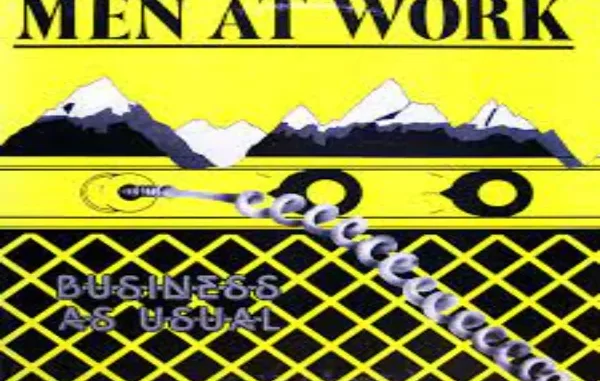
The Anthem of Youth: “Be Good Johnny” and Its Musical Roots
“Be Good Johnny” is an iconic rock song that resonates with the rebellious spirit of youth. Written by Colin Hay, Ron Strykert, and Greg Ham, and performed by the Australian rock band Men at Work, the song became an instant classic upon its release in 1982. In this article, we’ll dive into the story behind “Be Good Johnny,” explore its musical origins, and understand the impact it had on the world of music and culture.
The Birth of Men at Work
Before delving into the song itself, let’s first understand the band behind this musical gem. Men at Work, hailing from Melbourne, Australia, burst onto the international music scene in the early 1980s. The band’s lineup featured Colin Hay as the lead vocalist and guitarist, Ron Strykert on guitar, Greg Ham on flute, saxophone, and keyboards, John Rees on bass guitar, and Jerry Speiser on drums. Their debut album, “Business as Usual,” which included “Be Good Johnny,” would soon catapult them to global stardom.
The Inspiration Behind “Be Good Johnny”

“Be Good Johnny” is a track that captures the essence of teenage rebellion and the struggle to conform to societal norms. The song’s titular character, Johnny, is portrayed as a daydreamer, a troublemaker, and a non-conformist. His refusal to conform to adult expectations and his penchant for escaping into his imagination make him a relatable figure for many young listeners.
The song’s lyrics, penned by Colin Hay, offer a glimpse into the frustrations and desires of youth, highlighting the universal struggle of wanting to break free from the constraints of authority figures and societal expectations. Lines like “Don’t you play with grown-ups, Johnny / They’ll only use you / They’re all evil” resonate with anyone who has felt the weight of adult responsibilities and expectations.
The Musical Brilliance of “Be Good Johnny”
“Be Good Johnny” features the distinctive sound that Men at Work became known for—a fusion of rock, new wave, and reggae influences. Greg Ham’s saxophone and flute solos add a unique flavor to the song, contributing to its catchy and memorable melody.
The song’s upbeat tempo and infectious rhythm make it an irresistible anthem for rebellion and youthful defiance. Colin Hay’s distinctive vocal delivery adds depth and emotion to the lyrics, bringing Johnny’s character to life.
The Impact of “Be Good Johnny”

Upon its release, “Be Good Johnny” quickly became a hit both in Australia and abroad. It climbed the charts in the United States, Canada, and other countries, solidifying Men at Work’s status as one of the leading bands of the early ’80s.
The song’s enduring popularity is a testament to its relatability and timeless message. “Be Good Johnny” has been featured in various films, television shows, and commercials over the years, cementing its place in pop culture.
The Legacy of Men at Work
While “Be Good Johnny” is undoubtedly one of Men at Work’s most famous tracks, the band’s legacy extends beyond this single hit. Their debut album, “Business as Usual,” also included other notable songs like “Who Can It Be Now?” and “Down Under,” the latter of which became an anthem for Australian identity and remains a beloved classic.
Men at Work’s success was relatively short-lived, but their impact on the music industry and their ability to capture the spirit of the era are undeniable. They continue to be celebrated for their contribution to the new wave and rock genres.
Conclusion
“Be Good Johnny” stands as a musical time capsule, preserving the spirit of youthful rebellion and the desire to break free from conformity. Men at Work’s unique sound, catchy melodies, and Colin Hay’s poignant lyrics have ensured the song’s enduring relevance and its place in the hearts of music enthusiasts worldwide. Johnny, the daydreamer and rule-breaker, lives on through the song’s timeless message, reminding us all to embrace our inner rebels and stay true to ourselves.

Leave a Reply